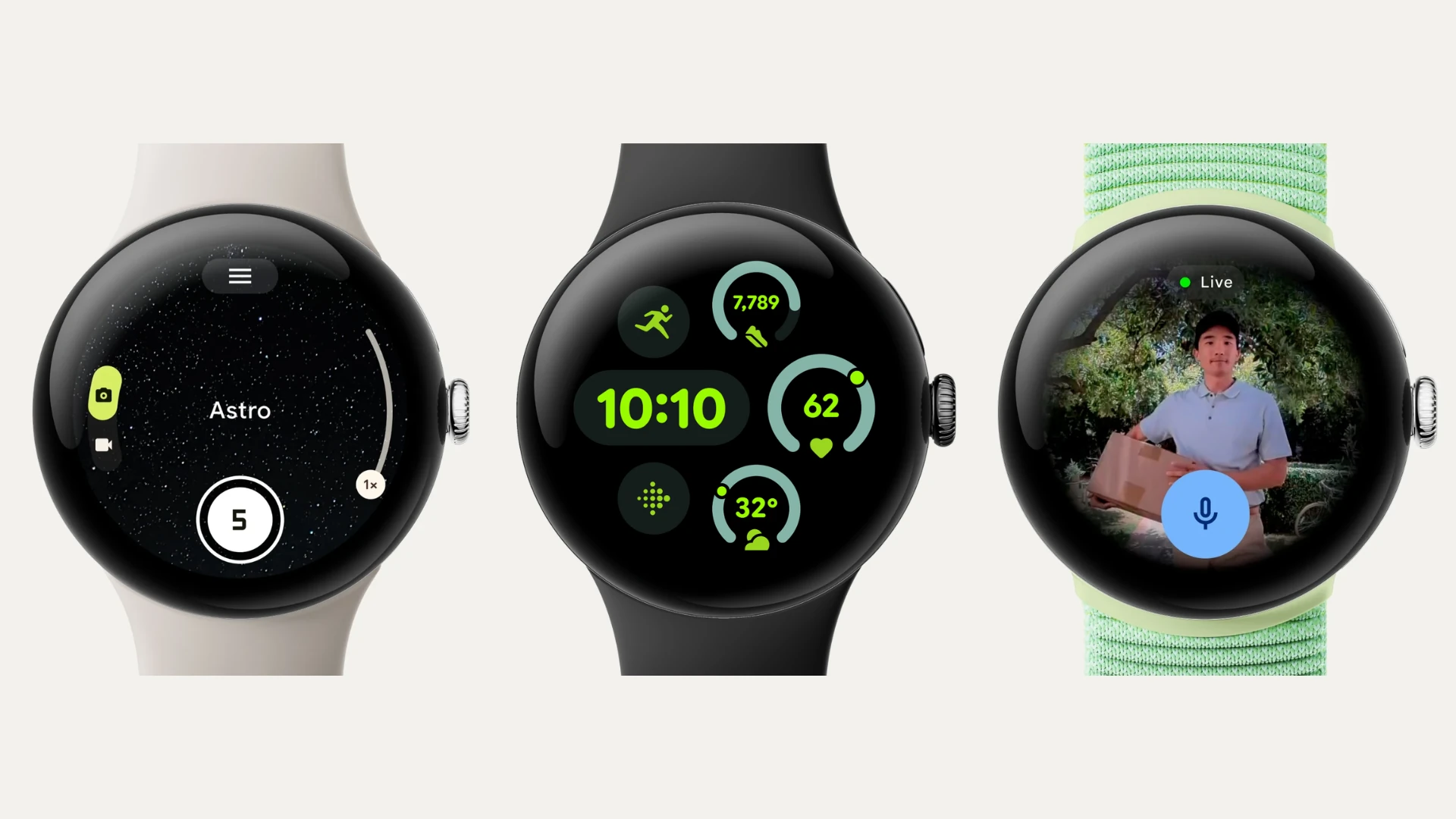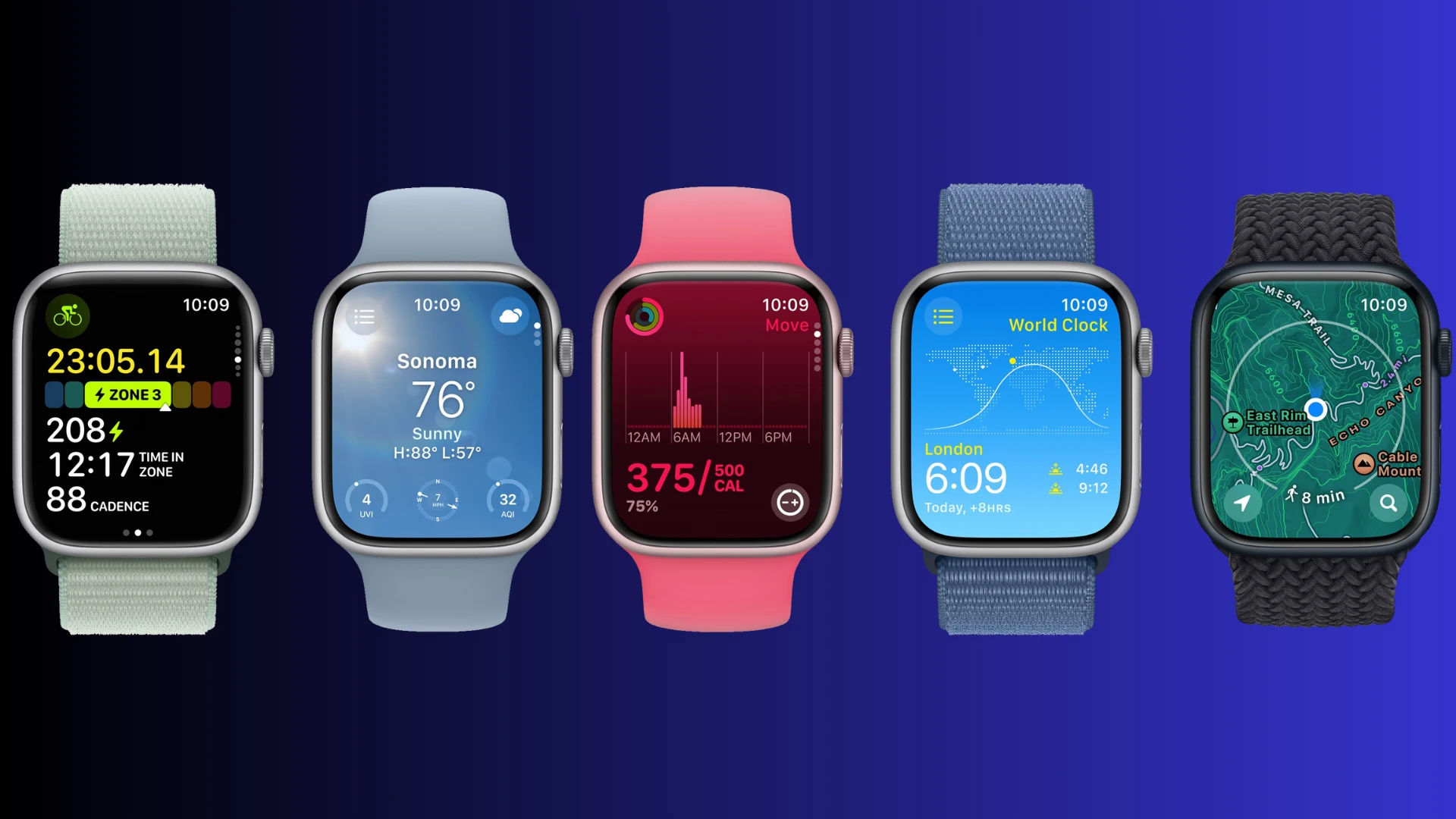In today’s fast-paced world, filled with constant notifications, deadlines, and the pressure to always be ‘on,’ finding a moment of peace can feel like searching for a Wi-Fi signal in the wilderness. But what if I told you that your smartphone – the very device that often causes stress – could actually help you de-stress?
Now, you might be thinking, “Isn’t staring at a screen the opposite of mindfulness?” And you’d be right, to a certain extent. But these apps are designed to gently guide you away from the digital chaos and into a state of inner peace. Think of them as your pocket-sized Zen masters, ready to offer guidance and support whenever you need it.
In this article, we’ll look into mindfulness and meditation apps, exploring what they are, how they work, and why they might be the missing piece in your stress-busting puzzle. We’ll also examine some of the top-rated apps on the market so you can find the perfect one to suit your needs and lifestyle.
Why Meditation Apps? The Science Behind the Serenity
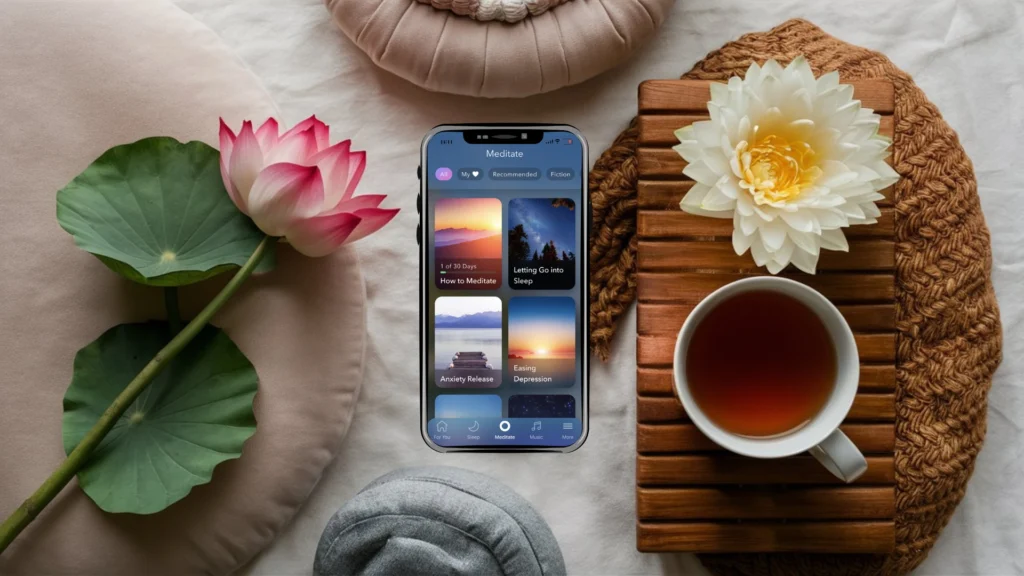
You might be wondering, “Can staring at my phone really help me chill out?” And the answer, surprisingly, is a resounding “yes!” Studies have shown that meditation apps can have a positive impact on mental health. They’ve been linked to reduced stress, improved sleep, increased focus, and even boosted self-esteem.
Here’s the science behind the serenity: When you meditate, your brain waves shift into a more relaxed state. Apps guide you through this process, making it easier for beginners and offering variety for experienced meditators. The calming voices, soothing music, and timed sessions help you create a peaceful haven, even if it’s just for a few minutes a day.
Key Features to Look for in a Meditation App
With a plethora of meditation apps available, choosing the right one can feel overwhelming. Here are some key features to consider:
- Guided Meditations: Look for apps that offer a variety of guided meditations for different purposes, such as stress reduction, sleep improvement, or focus enhancement.
- Meditation Timer: A timer allows you to customize your meditation sessions and track your progress over time.
- Variety of Content: Beyond guided meditations, some apps offer talks, music, nature sounds, or even stories designed to promote relaxation.
- User-Friendly Interface: A clean and intuitive interface makes the app easy to navigate and use, enhancing your overall experience.
- Customization Options: The ability to personalize your meditation experience with different voices, music, or themes can make the practice more enjoyable and effective.
Now, let’s explore some of the top-rated meditation apps that excel in these areas.
Calm
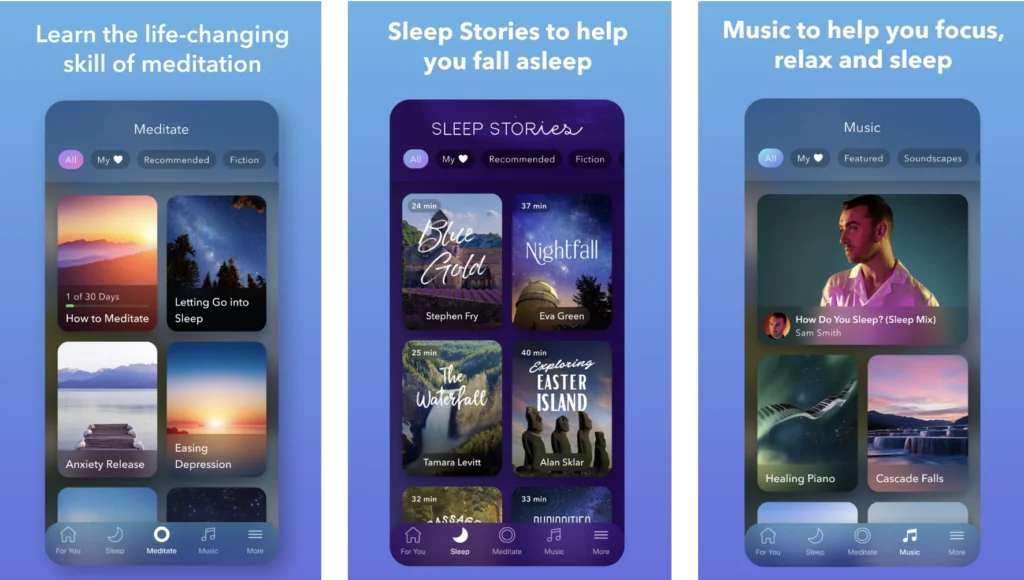
Calm is often hailed as the “Cadillac of meditation apps,”. It boasts a sleek interface, guided meditations for various needs (stress, sleep, focus), and soothing soundscapes. Its “Daily Calm” feature offers a fresh 10-minute meditation each day, perfect for establishing a consistent practice. Calm also features celebrity narrations and sleep stories, making mindfulness more approachable and enjoyable for some. If you enjoy listening to stories or talks as part of your mindfulness practice, you might also want to explore our guide to the best free ebook reader apps for Android, where you can find a wealth of inspiring and informative content.
Cons: The free version has limited content, and the subscription can be pricey, but it unlocks a wealth of resources. The extensive content library can feel overwhelming for beginners.
Headspace
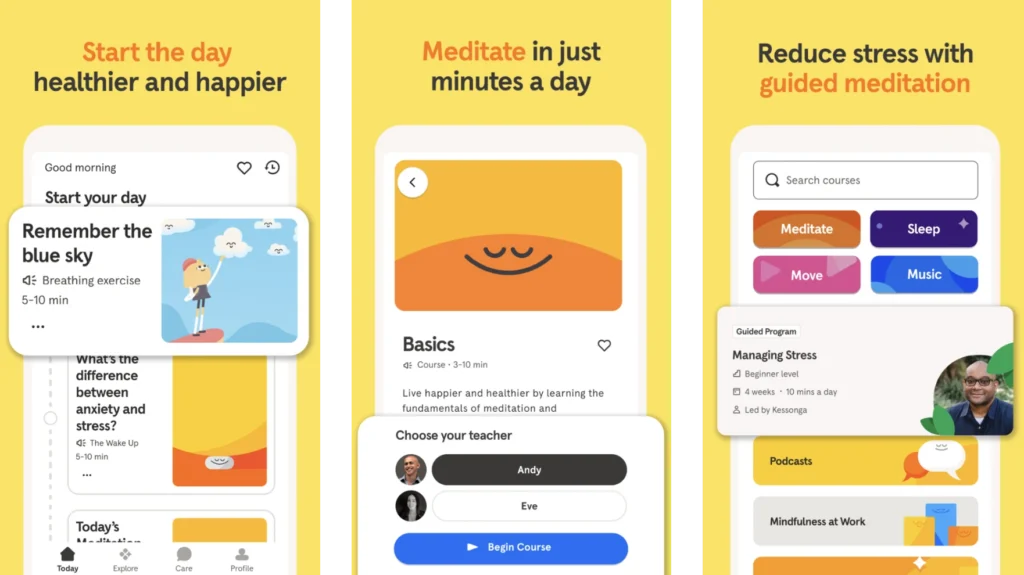
Headspace stands out with its playful animations and clear instructions, making it an excellent choice for beginners. It offers a well-structured “Basics” course that teaches fundamental meditation techniques. The app also offers meditations for specific challenges, like dealing with anxiety or improving relationships. Its “SOS” sessions are designed for moments of high stress or anxiety.
Cons: Headspace offers fewer free meditations compared to other apps, and the cartoon-like animations can be distracting. Also, some users find the voice of the main instructor to be a bit too cheerful.
Insight Timer
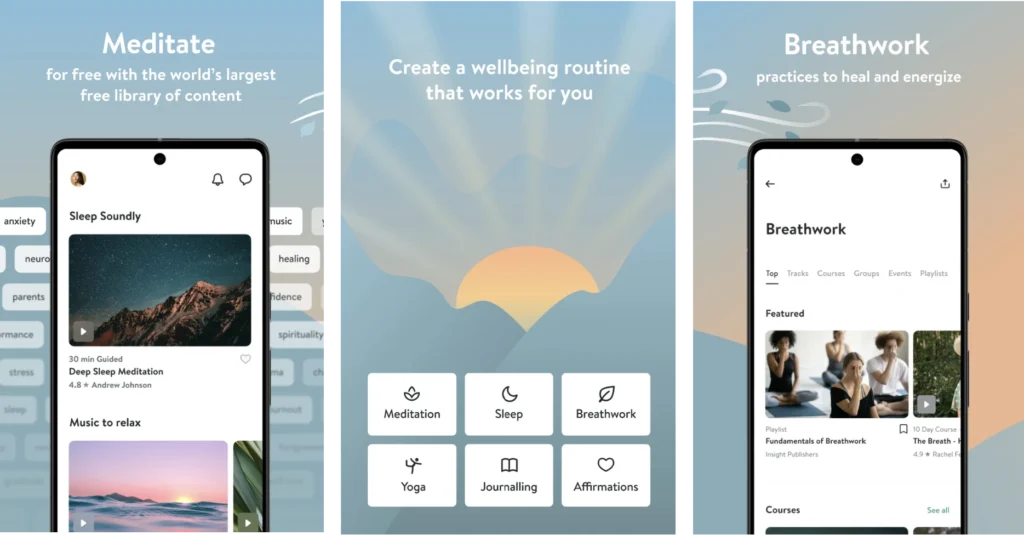
This app boasts the largest free library of guided meditations, talks, and music. It’s a community-driven platform that lets you connect with teachers and fellow meditators worldwide. While its interface might not be as polished as others, the sheer variety of content makes it a treasure trove for exploration.
Cons: The amount of content can be overwhelming for beginners.
Waking Up
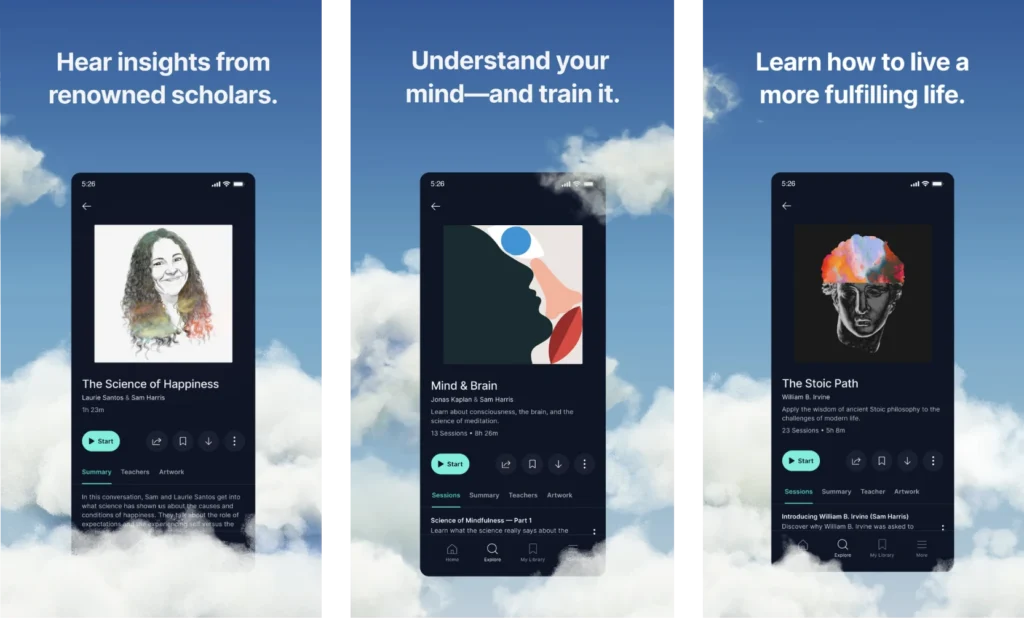
Created by neuroscientist and philosopher Sam Harris, Waking Up offers a secular approach to meditation. It focuses on self-inquiry and understanding the nature of consciousness. It features guided meditations, lessons, and conversations with experts, providing a deeper dive into the philosophical aspects of mindfulness.
Cons: Some users find the app’s focus on theory and philosophy less practical for everyday stress reduction, and the subscription cost is higher than some other apps.
Ten Percent Happier
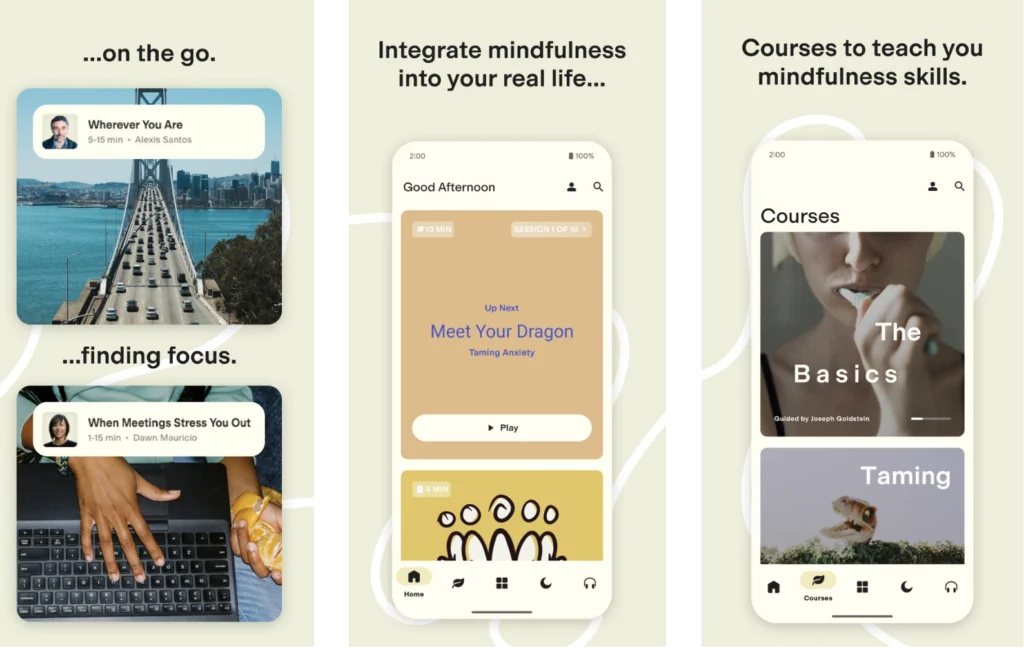
Based on Dan Harris’s best-selling book, this app is designed for skeptics and people who want to meditate but struggle to stick with it. It offers a practical, down-to-earth approach with short, guided meditations, videos, and talks on topics like managing anxiety, improving relationships, and finding happiness. The app’s lighthearted tone and focus on stress reduction make it a great option for beginners.
Cons: While the app is beginner-friendly, some experienced meditators may find the content too basic. The app also lacks the variety of soundscapes and music found in other options.
Smiling Mind
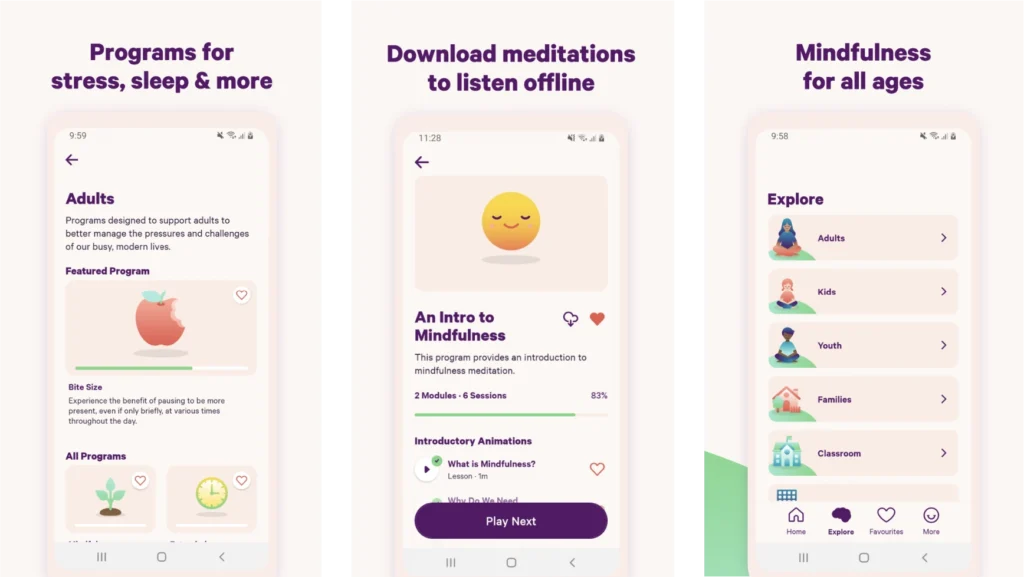
This completely free app is a fantastic option for families and schools, offering mindfulness exercises tailored to different age groups. The app includes over 700 lessons and practices, covering a wide range of topics such as stress management, emotional skills, and sleep improvement. Its friendly interface and focus on building healthy habits make it a great starting point for beginners of all ages.
Cons: While the app is free, some users find the interface a bit basic, and the content library may not be as extensive as some paid options.
Simple Habit
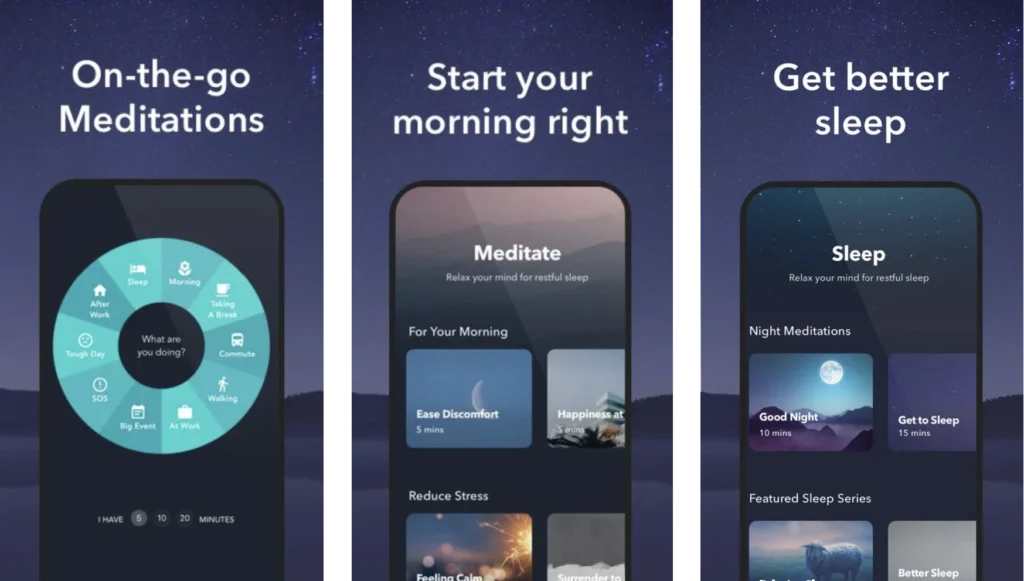
If you’re constantly on the go, Simple Habit is your go-to app. Its 5-minute meditations are designed to fit seamlessly into even the busiest schedules, proving that mindfulness doesn’t have to be time-consuming.
Cons: While the short meditations are convenient, some users may prefer longer sessions for deeper relaxation. The free version has limited content, requiring a subscription for full access.
Breethe
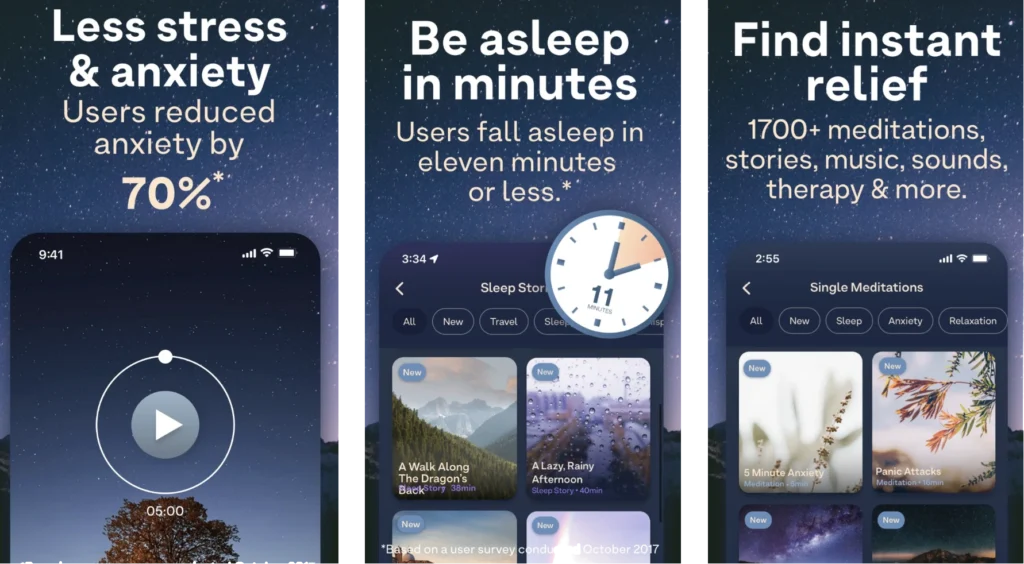
Breethe combines breathing exercises, guided meditations, and soothing music to help you find calm and improve your well-being.
Cons: Some users find the app’s interface a bit cluttered, and the voice of the main instructor may not resonate with everyone. The subscription cost is also on the higher side.
Buddhify
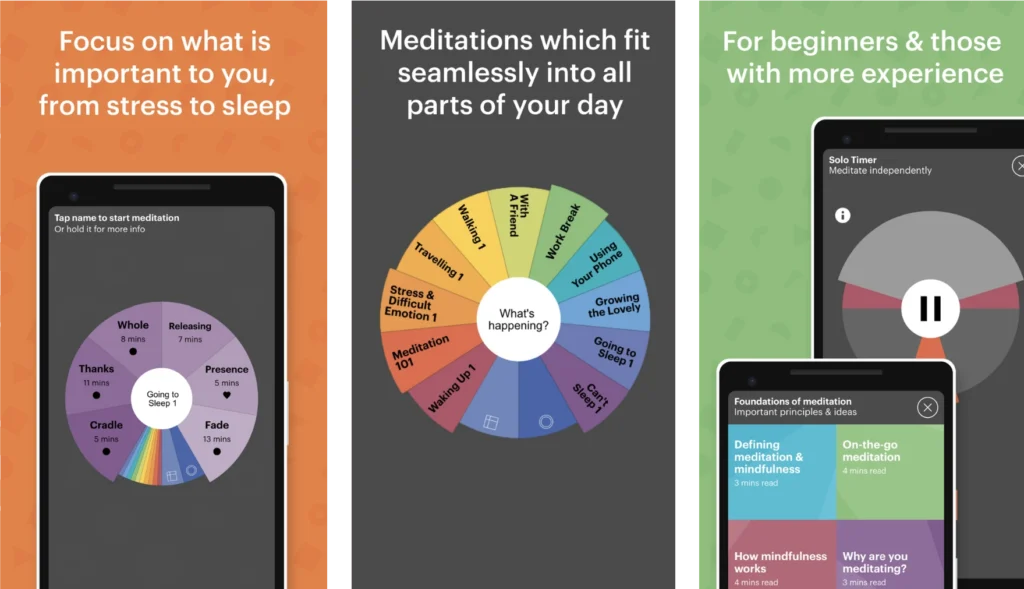
This app takes a unique approach by offering meditations tailored to specific situations and activities, like commuting, working, or dealing with difficult emotions. It’s perfect for those who want mindfulness to be a part of their everyday life, no matter what they’re doing.
Cons: While the app offers a unique approach, some users find the interface less intuitive than others. The number of meditations per category may also be limited compared to other apps.
Beyond the Apps: Tips for a Successful Meditation Practice
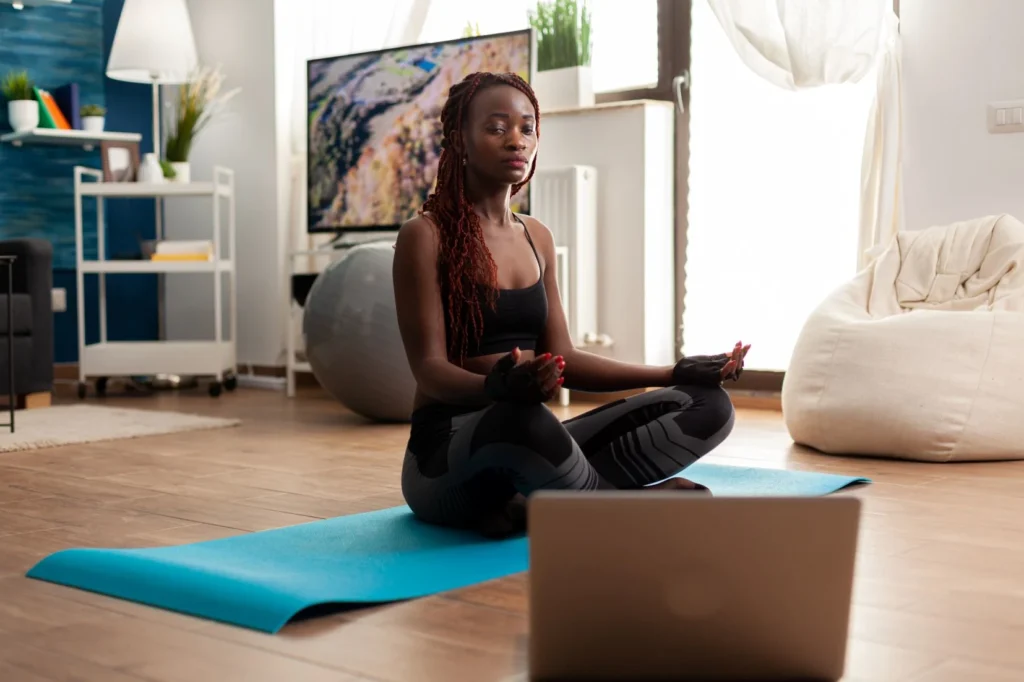
While meditation apps are a fantastic tool, here are some additional tips to help you cultivate a successful meditation practice:
Create a Dedicated Space: Find a quiet and comfortable space where you won’t be interrupted. This could be a corner of your bedroom, a cozy chair, or even a peaceful spot in nature.
Set a Regular Schedule: Consistency is key when it comes to meditation. Aim to meditate at the same time each day, even if it’s just for a few minutes.
Start Small: Don’t feel pressured to meditate for long periods right away. Start with 5-10 minutes and gradually increase the duration as you become more comfortable.
Be Patient: Meditation is a skill that takes time and practice to develop. Don’t get discouraged if your mind wanders or you find it challenging at first. Just gently bring your attention back to your breath or the guided meditation.
Experiment: There are many different types of meditation, so don’t be afraid to experiment and find what works best for you. You might enjoy guided meditations, mindfulness of breath, or loving-kindness practices.
Consider journaling your thoughts and experiences after each meditation session. If you’re looking for a digital tool to capture your reflections, check out our roundup of the best Android note-taking apps.
Embrace the Calm
Remember, the best meditation app is the one that resonates with you and helps you establish a consistent practice. So, explore the options, experiment, and find your perfect pocket-sized Zen master.
The journey to inner peace is a marathon, not a sprint. Be patient, be kind to yourself, and enjoy the process of discovering the transformative power of meditation. And who knows, with a little help from technology, you might just discover that inner peace was closer than you thought – right there on your smartphone screen.
FAQs
Are meditation apps effective?
Yes, studies show meditation apps can reduce stress, improve sleep, enhance focus, and boost overall well-being. They provide guidance and structure, making meditation accessible and beneficial for beginners and experienced practitioners alike.
How often should I use a meditation app?
Consistency is key. Aim for daily practice, even if it’s just for a few minutes. Many apps offer daily reminders and streaks to help you stay on track.
Can meditation apps help improve my sleep?
Yes, many apps feature guided meditations, sleep stories, and calming sounds specifically designed to promote relaxation and improve sleep quality. Some apps even track your sleep patterns and offer insights into your sleep habits.
I’m a complete beginner. Which meditation app is best for me?
Headspace is a great choice for beginners, thanks to its playful animations, clear instructions, and structured courses. Calm and Ten Percent Happier are also beginner-friendly options with a variety of guided meditations and content for those new to mindfulness.
Are there any free meditation apps worth considering?
Yes, several free apps offer quality content. Insight Timer boasts an extensive library of free meditations, talks, and music. Smiling Mind is another completely free option that focuses on building healthy habits. Also, many paid apps offer free trials or limited free content to get you started.
Are there any meditation apps specifically designed for children or teenagers?
Yes! Smiling Mind is an excellent choice, offering mindfulness exercises tailored to different age groups, including children and teenagers. Other apps like Calm and Headspace also have content specifically designed for younger users.
Can I use meditation apps offline?
Some apps allow you to download meditations and other content for offline use. Check the app’s features to see if offline mode is available.
Is it better to meditate with an app or on my own?
Both approaches have their merits. Apps offer guidance, structure, and variety, especially helpful for beginners. Meditating on your own allows for greater flexibility and self-discovery. The best approach depends on your individual needs and preferences.



